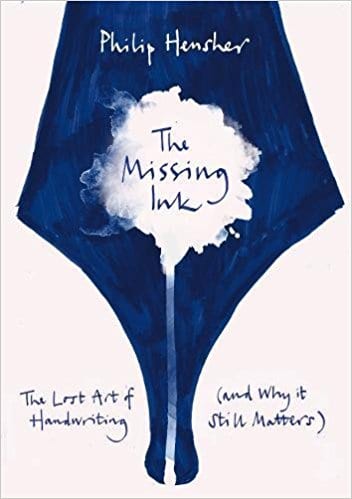The lost pleasure of handwriting
The lost pleasure of handwriting
The lost pleasure of handwriting
-
Hannah
-
Hannah

Do you remember when, as a child, you learned to write, those laboured first letters etched in pencil eventually morphing into a carefully considered cursive? Do you remember the scratch of the pencil, the woodsy scent of the paper? The feel of your first fountain pen, and the little callous it created on your finger – the inky stains on your hands and the spidery blots on the paper?
How hard we had to work to learn how to put all that was in our heads into words set down on paper, and set down neatly, with all the i’s dotted and all the t’s crossed. It was a labour – but for many, myself included, it was a labour of love. The pencil or the pen is an instrument that in our hands wields tremendous power. We can create.
My first stories, the stories that set me on the path to being the writer I am today, were penned on paper. I can see myself now, sitting at the kitchen table while my mother cooked dinner, legs swinging from the chair, pen scratching furiously across the paper, gleeful in my power to create. And later, after dinner, I would pass the ink-covered sheets to my parents, and they would read them and journey into a world of my imagination.
I wish now, all these years later, that I had kept those handwritten stories; that I had kept all my handwritten stories. They mean a lot in my memory, and they were precious, for they were made by my own hand.
Fast-forward to adulthood, and my debut novel, Burning Embers: I wrote this novel by hand. I loved writing it that way – I loved the shape of the letters, the words, the paragraphs as the story took form on paper. A cramp in my hand did not bother me: I was creating.

Burning Embers, available from my shop
But when it came time to submit this novel to publishers, of course it had to be typed, and so my handwritten pages were substituted for word-processed ones. Neat and tidy, and easy to read – but a little less soulful, I felt.
Since then, I have continued to write novels on the computer, because it is more practical. But I handwrite my notes (and there are many, based on my research and my planning), and I take great pleasure in this phase of the writing process. I feel, often, that it is when penning the notes that I am most a writer, for I am not only writing, I am writing – my hand wielding that powerful pen.
How often do you handwrite these days? Could you benefit from rediscovering the pleasure of writing by hand?
If this article has piqued your interest, I highly recommend reading The Missing Ink: The Lost Art of Handwriting, and Why It Still Matters by Philip Hensher. It is described as ‘a love letter’ to handwriting, and it does a wonderful job of convincing you that handwriting is an art form that is to be treasured, preserved and enjoyed.

Photo credit: Heiko Kalweit/Shutterstock.com.